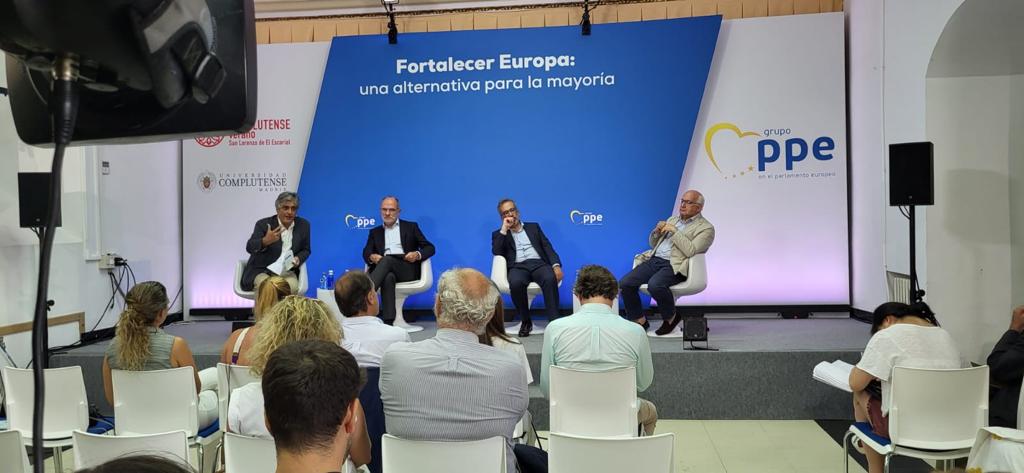PARTICIPATION IN THE SUMMER SCHOOL IN EL ESCORIAL

On July 14, Javier Zarzalejos participated in the summer courses of the Popular Party and the European People’s Party in El Escorial, in a conference entitled “The European Alternative”.
Specifically, he took part in a round table accompanied by Jaume Duch, General Director of Communication and spokesman for the European Parliament, and Paulo Rangel, Portuguese MEP for the EPP and vice-president of the Social Democratic Party of Portugal, under the title “Europe as origin and as destiny. Horizons of the European integration process in the 21st century”.
In the first place, Duch highlighted the cyclical nature of current events in relation to the war in Ukraine: how after 70 years of European construction and settlement of peace we are once again facing a crisis that calls into question the approach to the future of Europe and that shows the limits of multilateralism suggesting a return to a bipolar world. Duch concluded by stressing that the only solution to deal with this threat to democracy is reaffirmation in the EU, just as it was after the horrors of the 1940s.
Rangel then explained that, despite the cooperation finally achieved in the Covid-19 pandemic crisis, Vladimir Putin has unwittingly contributed even more to the European Union. The start of the war in Ukraine and all that it entails has given rise to a much greater sensitivity towards the common security and defense of the EU than hitherto, and to a new appreciation of the European way of life, now in danger. This lifestyle, in Rangel’s words, is based on democratic and human values of freedom, and it only works thanks to the new European integration.
Lastly, Javier Zarzalejos stressed the idea of rediscovering the origin of the European Union presented by this crisis situation. He spoke of the role of politics as a response and security in the face of uncertainty at this time and the new approach to the conditions of this new strategic security, also aware of cybersecurity and the threats of disinformation. Finally, Zarzalejos explained the idea of the new complementarity and symmetry between the EU and NATO, a common management never seen before, and the opportunity that the war in Ukraine represents for Western security actors, who are in the process of changing, to learn from the past and face the challenges of the future.
